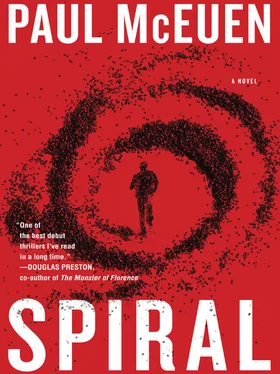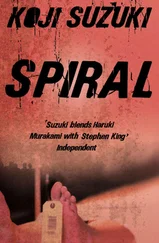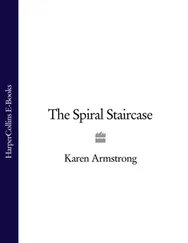In the early fifties, he had his first major breakthrough. Building on the work of Barbara McClintock, he studied transposons, sections of the genetic code that could move around within the genome. Connor showed that these transposons could turn genes on and off, and correctly postulated that retroviruses were specialized forms of transposons. Even more revolutionary were his experiments on endosymbiosis, an idea first proposed by the Russian botanist Konstantin Merezhkovsky in 1909. Connor, together with biologist Lynn Margulis, showed that key cell components such as mitochondria were originally bacteria that were engulfed by the host cell. Controversial when it was proposed, endosymbiosis is now accepted as a major cornerstone in the evolution of complex organisms.
Connor was elected to the National Academy of Sciences in 1960 and was awarded the Wolf Prize in 1972, the National Medal of Science in 1978, and (with Barbara McClintock) the Nobel Prize in Physiology or Medicine in 1983. He received honorary doctoral degrees from seventeen institutions worldwide, including Queen’s College, Beijing University, and the University of Chicago. He was voted one of the ten most influential biologists of the twentieth century by the American Association for the Advancement of Science.
In addition to his academic duties, Connor was a founding member of JASON, an academic think tank providing classified advice to the FBI, the CIA, and the military. Said John Rand, assistant secretary of state in the Nixon administration, “Connor was the one. He convinced Nixon to renounce offensive biological weapons in 1969.” He was also a major force behind the 1972 Biological Weapons Convention. Connor remained active on the issue, arguing vociferously against the buildup of the U.S. defensive bioweapons program over the last few years.
At the same time, Connor was a tireless advocate for the constructive uses of biotechnology. He became a major supporter of the field of synthetic biology, writing opinion pieces and lobbying Congress. His book Merge , describing the coming symbiosis between cells and microelectronics, is considered a classic in the field.
He is survived by a daughter, three grandchildren, and a great-grandson. He remained an active scientist to the end. Last year he was part of a team that won the Defense Advanced Research Projects Agency (DARPA) Grand Challenge competition for autonomous microbots. Said his colleague on the project, Jake Sterling, “There’s no other way to say it. He was a pure genius.” In an interview three years ago, Connor was asked to name his biggest breakthrough. He replied, “I am still hoping to make it.”
MAGGIE PUT THE PAPER DOWN, TEARS IN HER EYES. CINDY’S hand was on her shoulder. The breakfast table was quiet, just the two of them. Everyone else was still in bed.
Maggie tapped the article. “It’s very respectful.”
“Of course.”
“Most of it was probably written years ago.”
“I’m sure.”
Maggie folded the paper carefully, laid it on the table. The front-page piece was less flattering, filled with speculation about why he had killed himself. The picture they’d used was an aerial shot of the Fall Creek Gorge, with literally thousands of people clustered around both ends of the suspension bridge.
“Maggie? You all right?” Cindy asked.
Maggie realized she was holding her head in her hands, staring down at the table. “I keep thinking of the video of Liam jumping.” She rubbed her hands across her face. “That woman that was on the bridge with him. She has to be the key. Liam wouldn’t jump without a reason. He wouldn’t do that to Dylan.”
“Still no word on her?”
“No. I called the police twenty minutes ago. Nothing.”
Maggie was exhausted. She was up a half-dozen times the night before, struck with an irrational need to check on Dylan to make sure he was safe. She glanced toward the bedroom where her son was still sleeping. The last twenty-four hours had been tough on him—Dylan idolized his great-grandfather. Maggie had separated from Dylan’s biological father, Arthur Mix, six months after Dylan was born. A professor of operations research at Harvard, he had shown no real interest in staying in close contact, and Maggie had long ago given up trying to force it. They would see each other once or twice a year, but Dylan treated Arthur more like a distant uncle than a father.
Dylan was a great kid, but this was way beyond what any nine-year-old should have to handle. Maggie had been devastated when her father had died of pancreatic cancer and her mother passed away later the same year. She was twenty when it happened. Dylan was half that age. And he was having panic attacks. She had to come get him in the middle of the day at school just last month. He said his chest hurt. He said that he was sure he was going to die.
Dylan was seeing a child psychologist, a woman about Maggie’s age with children of her own, but it was slow going. If Dylan’s fears grew worse, she said drugs might be an option, but Maggie hoped it wouldn’t come to that.
A knock at the front door. “Who is that?” Cindy asked, surprised. Visitors had to call to get through the police guard at the top of the road. The press had been relentless.
“I’ll get it,” Maggie said. “It’s probably Mel, Liam’s lawyer. He called a few minutes ago.”
She opened the door to find Melvin Lorince waiting, a large collapsible file under his arm. She’d last seen Mel at his wife’s funeral four months ago. Nearly as old as Liam was, Mel was remarkably tall, even with his stoop, with hands like giant spiders.
“Maggie, forgive me for intruding.”
“You know you’re never intruding. Please. Come in.”
“I won’t impose. I wouldn’t have bothered you, except I promised your grandfather.” He handed her the collapsible file.
“What’s this?”
“Papers to sign. Copies of his will. Deeds to the house. A few other things. Some of them might surprise you. Liam had made a few investments.”
“What kind?”
“Just take a look. There’s a ledger that gives a full accounting. There’s also a letter inside. Addressed to you.”
“A letter.”
He nodded.
“When did he give this to you?”
“Two weeks ago. He told me that as soon as possible after his demise, I should deliver this to you. Personally. Made me promise out loud.”
She felt the tears starting again. “Two weeks ago? Are you serious? How did he seem?”
“His normal self. Making jokes about it. I remember he said, ‘Only a precaution. In case I’m hit by a bus. I’ve no intention of going anywhere just yet.’ ”
“Did he sound sincere?”
“I thought so then. Now—I don’t know, Maggie. I can’t make any sense of this. He loved you and Dylan so much. He talked about you all the time. He was so proud of you.…” Mel paused. He was losing it, too.
Maggie rubbed her eyes. She made herself say it. “You think he was… preparing for this?”
Mel shook his head. “I truly don’t know. I’m pretty good at reading people, but your grandfather? I could never tell when he was having me on. He could tell me the moon was made of ice cream and I’d believe him.” He looked down, as if he’d find the answer in the baseboards of the floor. “He was a proud man. A gifted man. Age takes your gifts from you.” He shook his head again, touched his hands to his face. “Being old is… difficult . You slowly begin to fade. And at some point, there’s not enough left.”
“So you believe it was suicide?”
“Maggie, I’m sorry.” He put a hand out, touched her arm.
SHE TOOK THE FILE TO HER BEDROOM, PLACED IT IN THE center of her unmade bed. She stepped back, gathering herself up. Pop-pop had prepared this for her. Before he died.
Читать дальше













